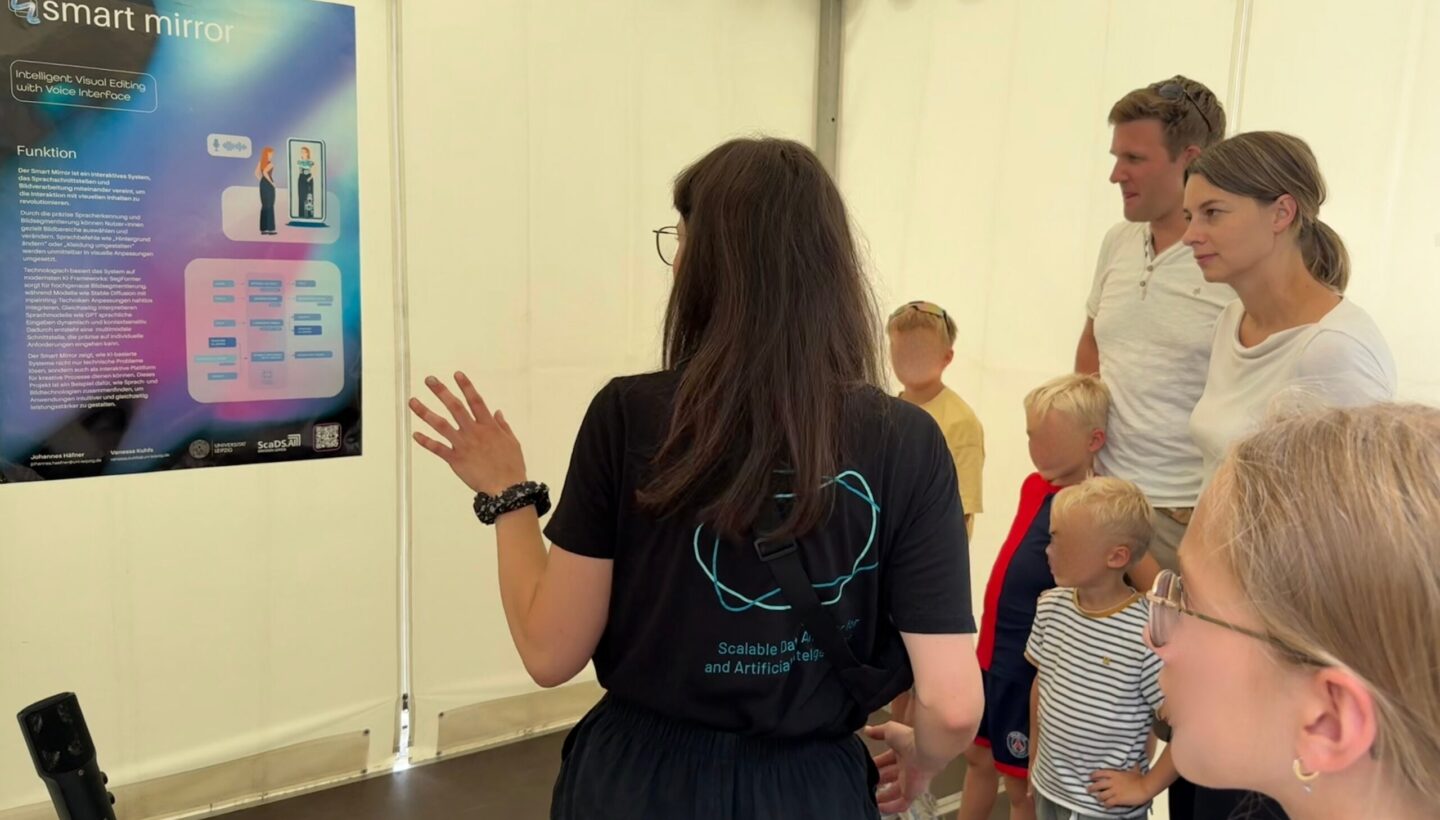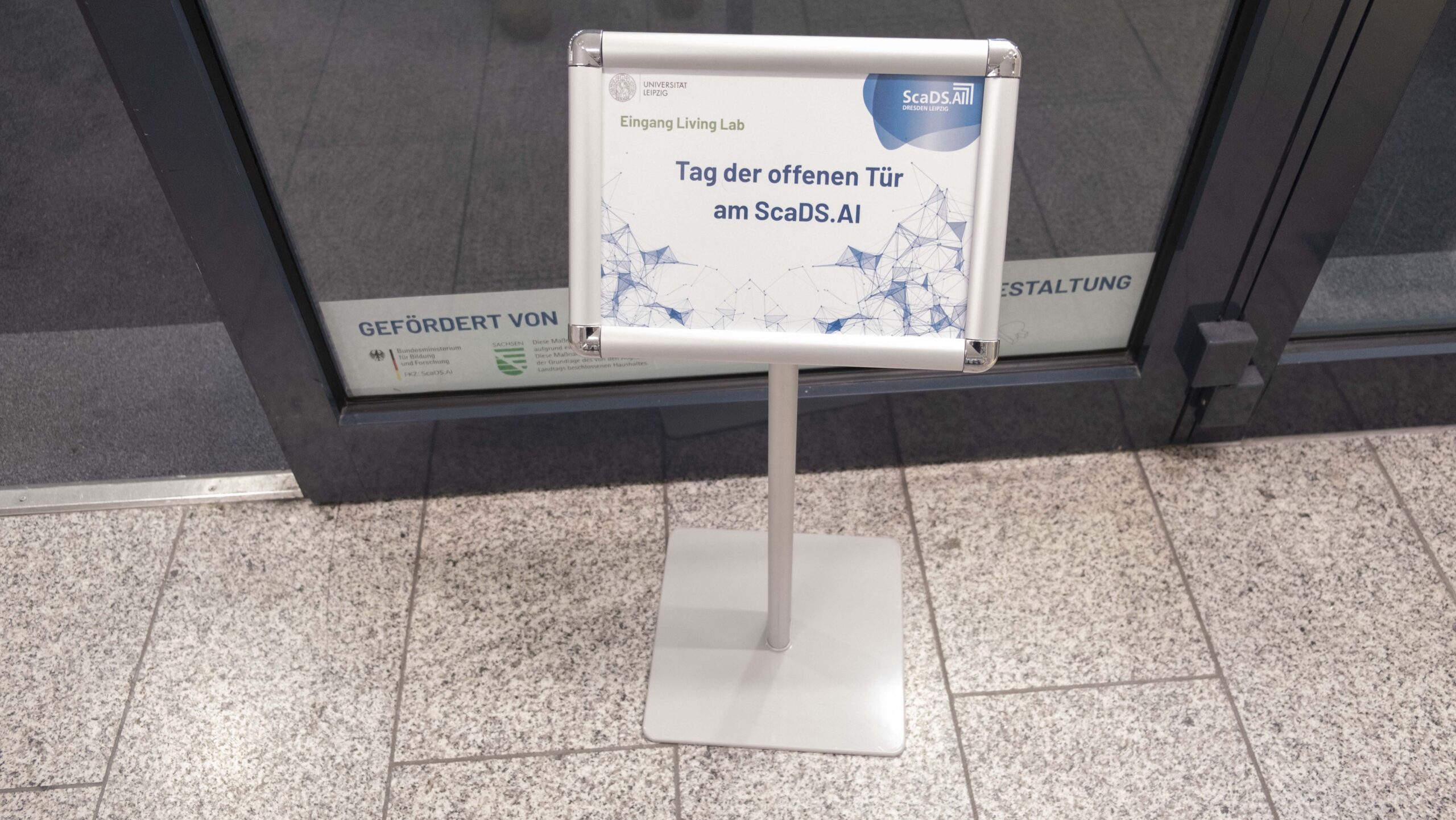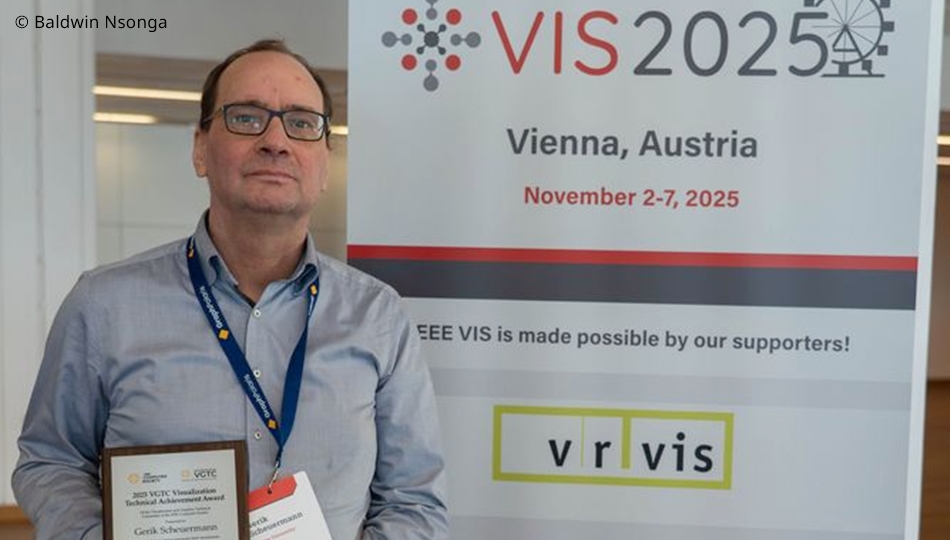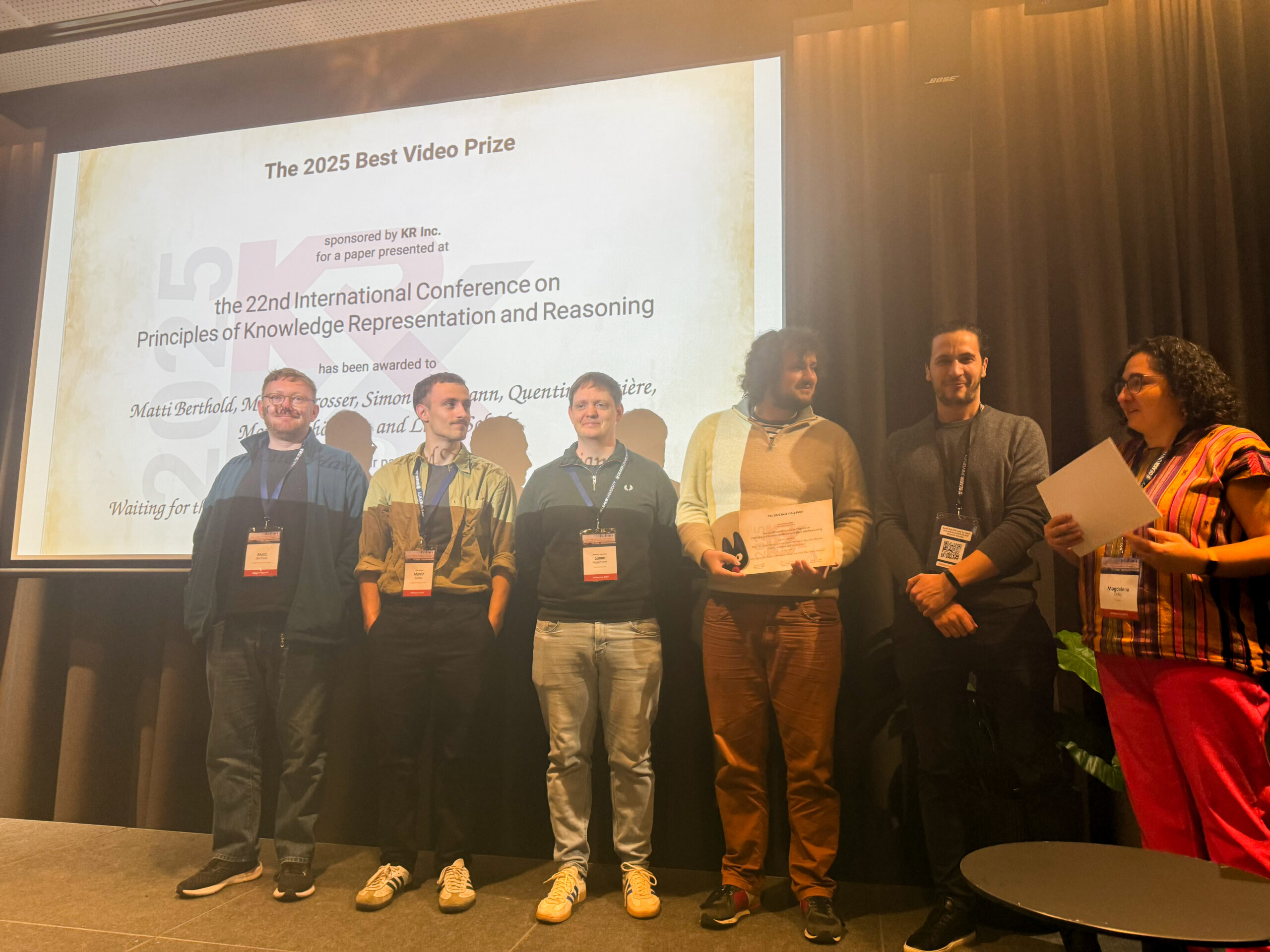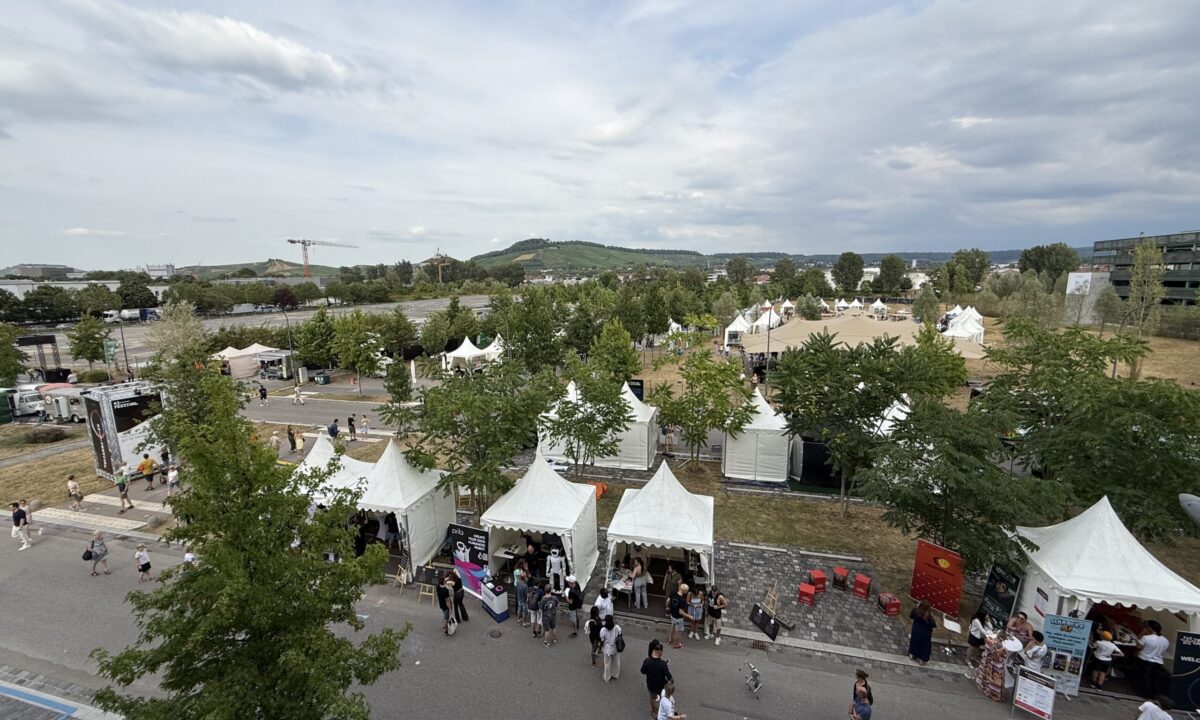
August 21, 2025
KI Festival 2025 in Heilbronn, Germany

Participation in large-scale, public-facing scientific festivals has become a significant part of the mission for Germany’s AI competence centers. At the KI Festival 2025 in Heilbronn, Vanessa Kuhfs and Johannes Häfner embraced this role, meeting with thousands of attendees and providing hands-on demonstrations while fostering exchange between the research community and a cross-generational public.
Festival Overview
With over 13,500 visitors, the KI Festival Heilbronn is one of the largest open-access gatherings in Germany dedicated exclusively to artificial intelligence and its societal impact. Organized by the newly founded IPAI Foundation and hosted at Zukunftspark Wohlgelegen, the 2025 edition invited everyone to experience AI in the truest sense. To emphasize the event’s dedication to inclusivity and the democratization of digital transformation, the organizers offered free admission and required no registration.
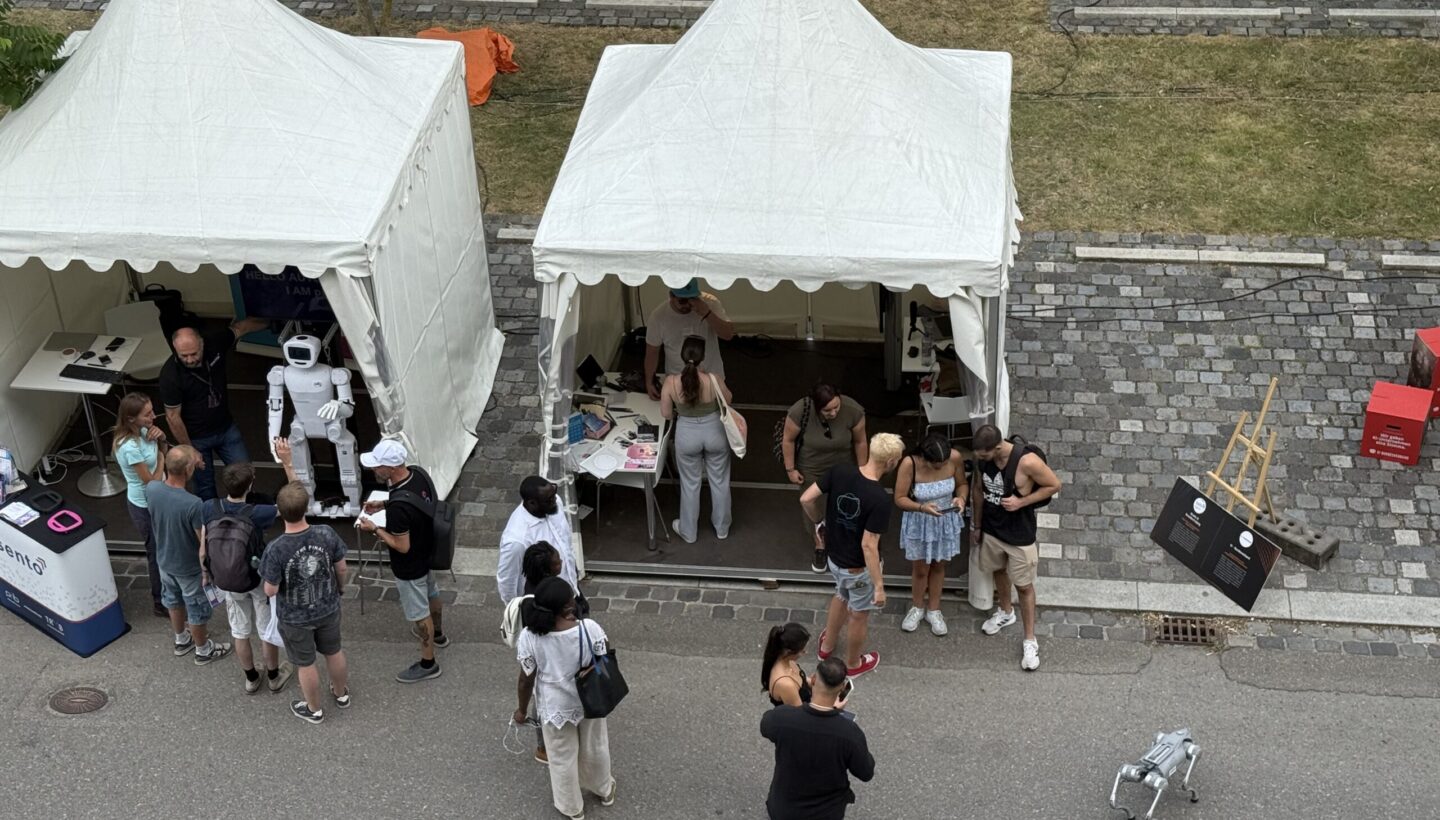
The Demo Stations
The Magic Mirror is an interactive demo station that uses generative algorithms to modify live-captured images of visitors along with their spoken commands. Unlike traditional funhouse mirrors where distortion is purely physical, Magic Mirror’s algorithm generated multiple versions of each participant’s likeness, filtering them through varying pre‑trained datasets and prompt‑based transformations.
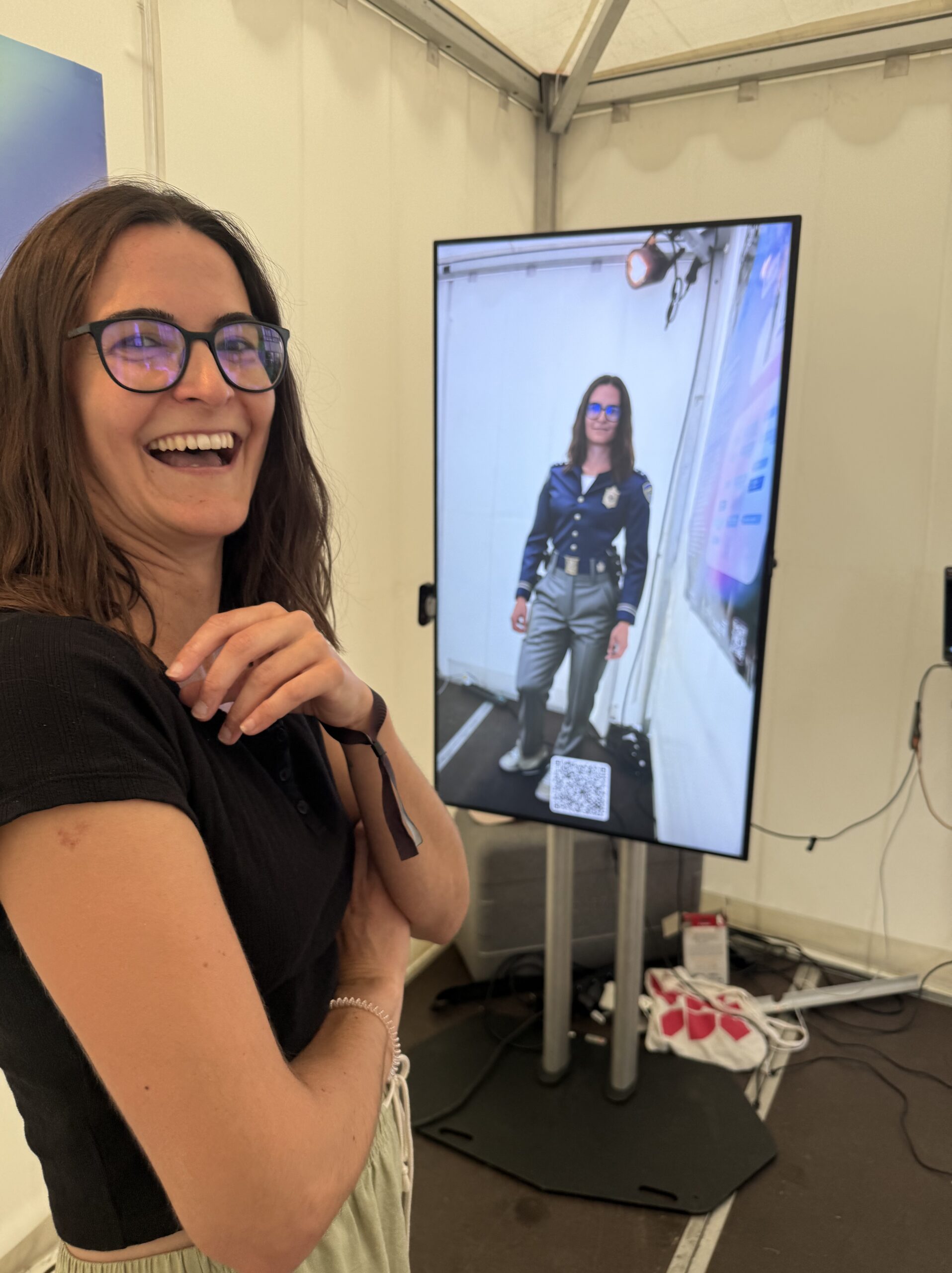
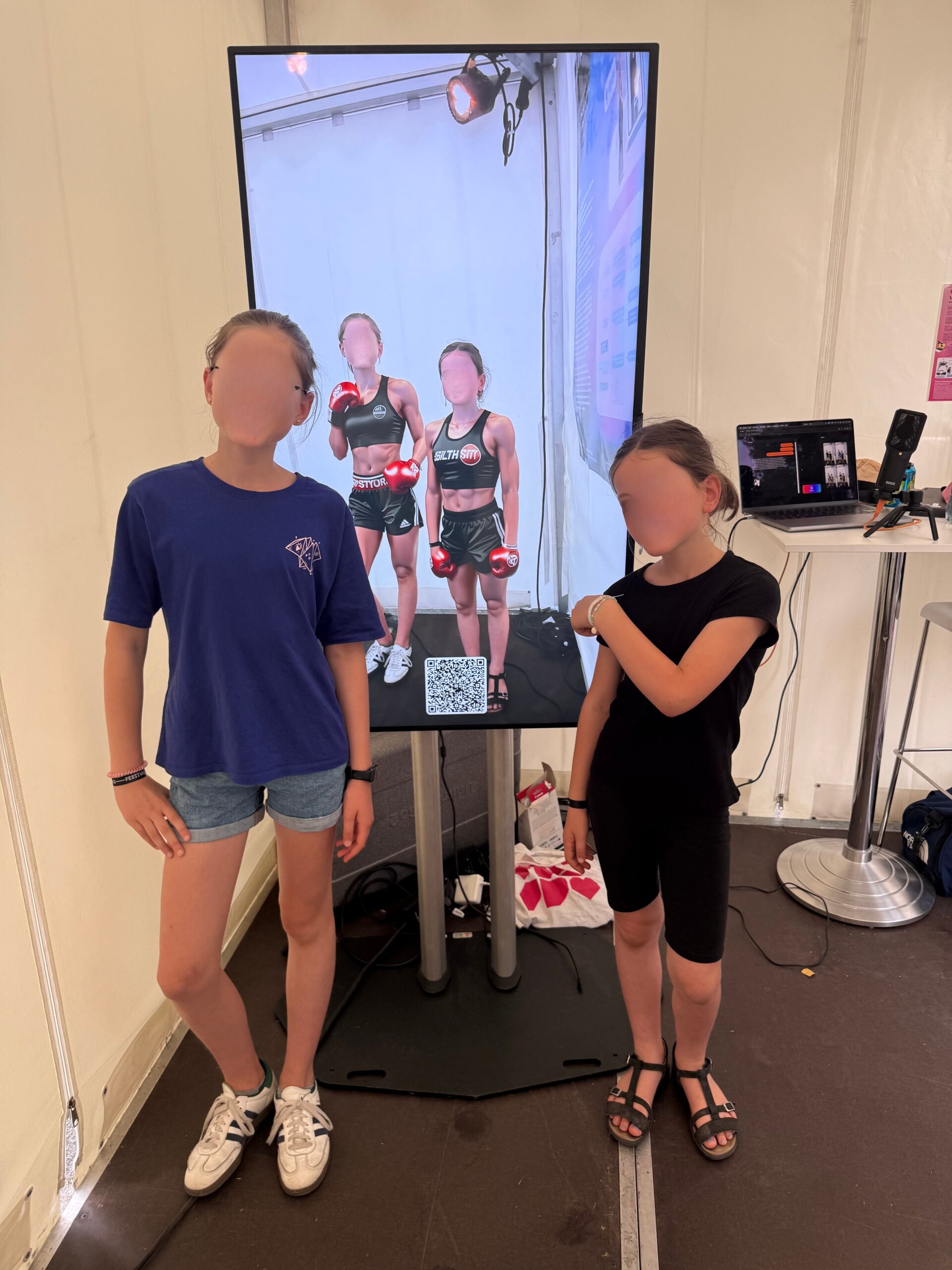
Another hands-on demonstration was the quadruped cop. A robot with four articulated limbs that resembles a robotic dog. Visitors were invited to interact with the quadruped cop by guiding it through obstacles and observing its autonomous recovery behaviors after simulated disturbances. The dog-like form factor and responsive movements make it an engaging bridge between abstract AI research and tangible robotics. Overall, this made ScaDS.AI Dresden/Leipzig’s research not just visible, but tangible.
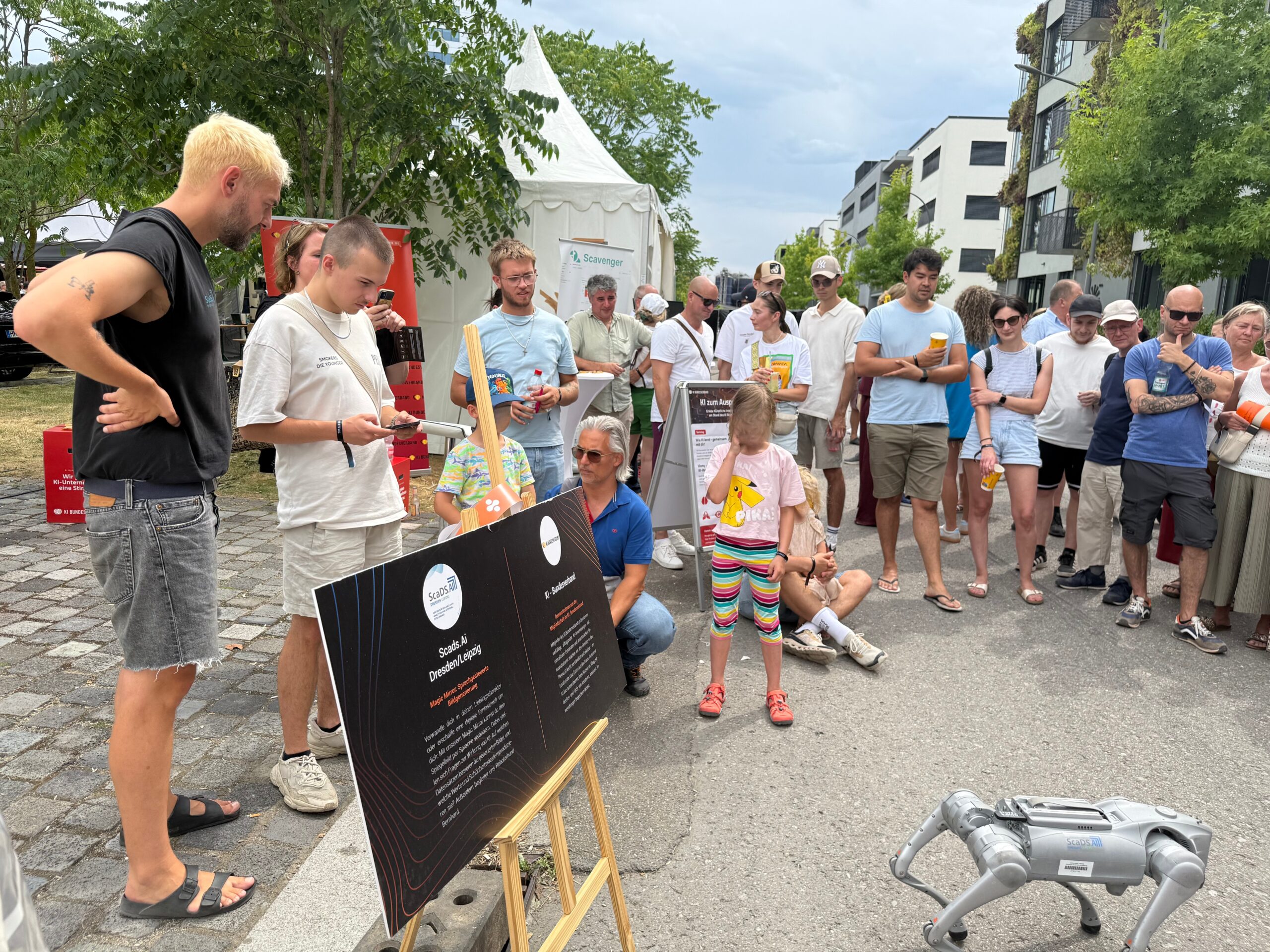
Engaging in AI Literacy
The demo stations accomplished several critical goals. They transformed abstract AI into experiential learning by empowering previously hesitant visitors – especially families and non-experts – to own their experience. In fact, they provided a starting point for deeper questions about fairness, uncertainty and real-world impact. Meanwhile, the Magic Mirror confronted each visitor with subtly altered reflections, making it impossible to ignore how bias seeps into datasets and then into our perceptions of beauty, identity, and worth. Side by side, these installations made evident the abstract debates around fairness in AI, thus showing that seemingly neutral systems often reproduce existing power imbalances.
